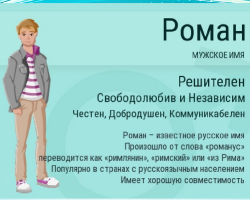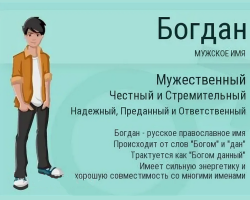Detailed instructions for the use of the drug Fenibut. The choice of analogues and compatibility with other medicines.
Content
- Phoenibut - Instructions for use
- Indications
- Phenibut tablets: How long can you take?
- Dosage
- Children
- During pregnancy
- Side effects
- Contraindications
- Phenibut: overdose
- Phenibut: Analogs
- Is it possible to phenibut for the night?
- Phenibut compatibility with alcohol
- Fenibut compatibility with Mexidol, phenazepam, Atarax, Cavinton, Glycin and other drugs
- Afobazole with phenybut?
- Pantogam with phenybut?
- Phenibut or Anvifen?
- Phenibut or phenotropil?
- Phenibut: reviews
Phoenibut - a nootropic drug to improve human brain activity has been widely used in medical practice since Soviet times. The article will introduce the instructions for the use of Phoenibut, analogues and compatibility with other medicines.
Phoenibut - Instructions for use

- Phenibut Refers to domestic drugs, which was developed in the 70s for astronauts, in order to reduce the stressful state with a long time for the pilots in outer space, maintaining high mental potential, vital energy and high performance.
- Annotation on the use of the drug explains the rules for taking the drug in detail, indicates the diseases in which the medicine is prescribed, adults and children's dosages, contraindications and side effects are prescribed.
- This medicine belongs to the group of nootropics (substances that improve brain activity) and daytime tranquilizers-anxiolytics (psychogenic sedatives).
- Phenibut Increases brain bloodstream, enhances vitality and performance, improves memorization, concentration, relieves emotional instability of behavior. At the same time, the medication acts relaxing: stress, tension, fear, sleep, is normalized.
Aminophenyl melting acid -active component of the drug Fenibut. The medicine has a single dosage: 250 mg in one tablet, in a package of 10 or 20 pieces. In the Russian Federation, the phoenibut of such pharmaceutical manufacturers is registered:
- Ozon LLC Russia
- LLC "Organina" Russia
- Moscow Endocrine Plant Russia
- Mir-Farm LLC Russia
- RUP Belmed Permanapes Republic of Belarus
- OlineFarm Latvia
Important: Phoenibut is a prescription drug and is released strictly according to a doctor's prescription.

Indications
Phoenibut refers to drugs derivative of γ-aminomatic acid. This substance is the main brake mediator of the central nervous system of all mammals, including humans. The acting substance of phenibut acts as a biogenic stimulant of neurotransmitter and metabolic brain reactions.
In a state of inhibition, the brain requires a smaller amount of oxygen and energy feeding, and this saves and protects the brain from prolonged load and aging.
Pharmacological action of Phoenibut:
- strengthening blood supply to the brain, removing spasms, expanding blood vessels
- alignment of the balance between excitement and inhibition in the brain
- protection of the nerve cells of the brain from oxygen starvation
- activation of energy and metabolic processes in the neurons of the brain

A drug Phenibut Showed by such diseases:
- neuropsychic states, accompanied by anxiety, fear and anxiety
- mental and physical overwork
- depressive and stressful conditions
- meniere's disease (inner ear disease, leading to deafness)
- as a sedative medicine before painful medical manipulations and surgery
- insomnia and alarming dreams
- dizziness and noise in the ears with pathologies of the vestibular apparatus
- preventive medicine at kinetosis
- in children's practice with nervous tick, stuttering, enuree
- withdrawal syndrome (breaking) in the treatment of alcoholism
There is data on the positive dynamics of Phoenibut in Parkinson's disease.
Phenibut tablets: How long can you take?

- The duration of treatment is established by the attending physician according to the diagnosis of the disease, the severity of the disease, the dynamics of the drug on the body, the age category, tolerance and the lack of side effects.
- Typically, phenibut is prescribed 2-3 weeks with good tolerance of the medicine. With further treatment, it is possible to adjust the dose and extension of the course up to 4-6 weeks.
- With dizziness and noise in the ears caused by dysfunction of the vestibular apparatus and Meniere's disease, a course of treatment with phenibut is prescribed at 14 days.
Important: it should be remembered that the duration of treatment with phenybut is established by a doctor. The uncontrolled intake of the drug Phenibut for a long time can provoke a mental and physiological dependence on the drug. The person’s well -being is so deteriorating that he is not able to abandon the pills.
Dosage
Therapeutic dose of the drug Fenibut - 250 mg. Different indications of diseases require differentiating dosing of the drug, as well as take into account the patient's age and the degree of tolerance of the medication.
Phenibut is prescribed for 250-500 mg 3 times a day after eating. In some cases, an increase in the dose is possible to 2500 mg per day.
Important: a doctor sets the dosage of the medicine by the doctor. Treatment with the drug should be carried out under medical control. It is forbidden to independently increase the dose of the drug.
A single maximum dose of the drug is:
- for adults - 750 mg (3 tablets of 250 mg)
- for elderly people over 60 - 500 mg (2 tablets of 250 mg)

- Migraine: For the prevention and relief of the attack, a dose is used: 150 mg per day.
- Mental and physical overwork: with mental fatigue and reduced memory, to increase performance and vital tone, the recommended dosage: 250 mg per day for 1-1.5 months.
- Anxious and restless states, insomnia: With constant anxiety and fear syndromes, the inability to fall asleep, an restless unstable sleep with anxious dreams prescribe a drug 250 mg 2 times a day for 1.5-2 months before the pathology disappears.
- Apistine syndrome: Relief of withdrawal syndrome begins with 250-500 mg of the drug three times a day and a night dosage of 750 mg. Then the dose is gradually lowered.
- Dizziness and Meniere disease: The dosage is 250 mg 3 times a day after eating for two weeks
- Motion: An hour before the alleged trip or when the first symptoms of motion sickness appear, 250-500 mg of the drug are taken.
Important: with severe manifestations of kinetosis: severe vomiting, arterial hypotension, impaired consciousness, etc. The use of phenibut is ineffective even with an increased dose of the drug up to 750-1000 mg.
Children

Phenibut It is used in children's practice as a medicine that has a mild effect with low toxicity and minimum of side effects. The medicine is widely used in the treatment of stuttering, neuropsychic manifestations, an enuree, hyperactivity of the child in a dosage of 20-100 mg per day, withstanding a course of up to 2-4 weeks.
Children's dosages of phenybut in age category:
- Children up to 8 years old: 20-100 mg 3 times a day
- 8-14 years old: 250 mg 3 times a day
Maximum children's doseis:
- up to 8 years: 150mg
- from 8 to 14 years old: 250 mg

IMPORTANT: Phenibut is not appointed to children under two years old.
Since the medicine has a single dosage of 250 mg, the dose for childhood is calculated correctly of certain difficulties. Therefore, it is advisable to treat children with phenybut, using a dosage form in the form of powders, emergency prepared in a pharmacy according to a doctor's prescription.
IMPORTANT: You should not independently appoint a child of phenibut with increased activity, tearfulness, irritability and unstable mood. Such a child should be shown to the doctor, and at first to use sedatives of plant origin based on motherwort and valerian.
During pregnancy

- Instructions for the use of the drug Phoenibut strictly stipulates the inadmissibility of treatment with medicine pregnant (especially in the first trimester) and women breastfeeding due to a possible toxic effect on the fetus or child.
- In cases of insomnia or anxious conditions of pregnant women requiring treatment, the doctor has other medicines and drugs in the arsenal, which allows you to remove pathological symptoms, without endaning the health of the future baby.
Side effects
The side effects of the drug can manifest itself already on the first day or even hours of use. Sometimes this happens after a long course of treatment. Typically, phenybut is well tolerated and side effects are not found so often, but still happens. As a rule, reactions to the reception of phenybut occur at the beginning of treatment. The following side effects for taking the drug are noted:
- allergic manifestations in the form of red spots, rash, skin itching
- drowsiness
- nausea
- headache
- excitation
- dizziness

With any signs of the manifestation of the side effect of the medicine, the doctor should be informed. In such cases, the doctor reduces the dosage of the drug or replaces treatment with other drugs.
Contraindications
Annotation on the use of Phoenibut indicates the following contraindications:
- children's age up to 2 years
- individual reaction
- pregnancy
- lactation
- hepatic pathology
Important: patients with erosive and piano manifestations should remember that the medicine tends to cause irritating effects on the walls of the stomach.
Phenibut: overdose

Failure to comply with the dosing of the medicine in the form of an increase in the therapeutic and maximum dose, a change in the frequency of administration, ignoring the recommendations of a doctor can lead to sad consequences.
Such complications can be caused with the simultaneous administration of other drugs that potentiate the effect of phenybut. As a result of an overdose of the drug, intoxication of the body with phenomena occurs:
- increased drowsiness
- reduced pressure
- cold later and weakness
- nausea and indomitable vomiting
- fat liver dystrophy
- renal failure
- a change in blood picture (increased eosinophils)
Important: in the case of poisoning with the medicine and the presence of the listed syndromes, urgent help should be immediately caused.
An overdose treatment includes gastric lavage and prescribing medicines-spraxes: Sorbeks, activated coal, Enterosgel, Polysorba, Polyphepan. In the future, treatment is directed to the normalization of the body's life.
Phenibut: Analogs

Exist analogs drugs Phoenibut with different chemical composition, but similar effect on the body with similar indications in the application and sinonym drugs With the same active substance, but of different pharmaceutical manufacturers.
Analogs drugs
- Adapol tablets
- Aminalon tablets
- Atarax tablets
- Afobazole tablets
- Vinpocetine tablets
- Glycine tablets
- Cavinton tablets
- Calcium gopantenate tablets
- Locetam tablets
- Mabikar tablets
- Nootropil tablets
- Omaron tablets
- Pantogam tablets
- Pantocalcin tablets
- Pimino tablets
- Piracetam tablets, capsules
- STRESS capsules
- TENOTEN and TENOTEN Children's tablets for resorption
- Fezam capsules
- Fenorelaxan tablets
- Phenotropil tablets
Sinonym drugs
- Anvifen capsule
- Noofen capsule
Is it possible to phenibut for the night?

- Phenibut helps to normalize sleep and is used for some types of insomnia. The medicine relieves anxious condition before bedtime, removes fears, promotes falling asleep.
- Phoenibut is effective as a soft cure for insomnia with symptoms of nervous tension, fussiness of the mind, nightmares, and alarming dreams.
- Taking the drug at night favorably affects the structure of sleep with violations associated with neurotic genesis: the time of falling asleep is accelerated, the duration and depth of sleep and positive well -being increases after awakening.
Important: Phoenibut is not a sleeping pill that eliminates the insomnia in a short time. The tablets are taken as prescribed by the doctor at the dose prescribed by him. To achieve the effect, treatment is required for a certain time.
Phenibut compatibility with alcohol

- Although, phenybut is widely used to stop withdrawal syndrome (addiction or breaking syndrome) with alcohol dependence, this does not yet mean that the drug is compatible with alcohol.
- Treatment of alcoholism using phenibut is always carried out in stationary conditions under the supervision of a doctor. The dosage of the drug, the scheme and course of treatment are prescribed by the attending physician and corrects it depending on the well -being of the patient.
- Phenibut potentiates the action of alcohol. Simultaneous medication with alcohol causes faster and more intoxication, and, accordingly, deeper intoxication.
- The joint consumption of alcohol and phenibut can lead to unpredictable consequences: from a critical state against the background of alcohol intoxication caused by a sedative and sleeping pills, to serious disorders from the gastrointestinal tract, liver and blood paint.
Fenibut compatibility with Mexidol, phenazepam, Atarax, Cavinton, Glycin and other drugs

- Phenibut is widely used in medical practice both in monotherapy and combination with many drugs for better effectiveness.
- With the joint use of anxiolytics, antipsychotics, sleeping pills, narcotic analgesics, anticonvulsants with phenybut, the effect of potentiation is observed, which can lead to a critical situation.
- In some cases, doctors prescribe drug combinations using lower dosages. This achieves a stronger therapeutic effect with smaller doses of drugs.
Phenibut, Mexidol, Glycin
- There are methods of the simultaneous purpose of phenybut, Mexidol and glycine in nervous exhaustion, breakdowns, unstable behavior, poor dream, reduced performance.
- MexidolLike Phenibut It enhances blood circulation, improves memory, reduces dizziness, relieves symptoms with vegetative-vascular dystonia.
- Glycine Softly reduces psycho -emotional stress, increases social adaptation, and contributes to falling asleep.

Fenibut, phenazepam, Atarax
- Phenosepam and Atarax — anxiolytics (transquilizers) a stronger action than Phenibut. When combining these two drugs with phenybut, an increase in the sedative-blessed effect and inhibition of the motor nerves and muscles is observed, which can lead to undesirable side effects: increased drowsiness and lethargy.
- Typically, such joint combinations of drugs are not used. In some cases, doctors prescribe phenazepam or atarax, strictly selecting the dosage of drugs in each individual case, as a rule, reducing the dose.
Fenibut, Cavinton
Cavinton (Vinpocetin) - a well -known drug, is used in different age groups of the population to improve blood circulation of the brain. Phenibut also has the same nootropic function. If necessary, doctors combine drugs, adjusting the doses and the course of treatment.
Afobazole with phenybut?

- If compared Phenibut With Afobazole, the latter is a more modern drug that has begun to be widely used in neurological practice in the past 15 years. Like Phenibut, Afobazole Designed by domestic scientists and has nootropic properties, relieves nervous tension and stress.
- Afobazole It has low toxic properties and does not lead to inhibition and drowsiness. At the same time, the drug copes well with fears, activates mental activity, intelligence and memory.
- Afobazole It is not used in children's practice, with sensitivity to galactose and lactase deficiency. The drug is contraindicated in pregnant and nursing women, liver pathologies. Use for treatment Phenibut or Afobazole The attending physician decides according to the diagnosis.
Pantogam with phenybut?
- Pantogam shows similar therapeutic qualities as PhenibutHaving another chemical active substance (calcium gopantenate). The drug is widely used as a psychostimulator and nootropic medicine for hyperkinesis, nervous pathologies, ticks and stuttering in children's practice.
- For medicinal purposes Pantogam and Phenibutused both in monotherapy and in a joint combination with doses adjustment and course of treatment. There are also alternate therapeutic courses Phenibut and Pantogam.
Phenibut or Anvifen?

- Anvifen- A representative of the new generation nootropes. The active component of the drug is amylofenyl -melted acid. Phenibut and Noofenthey are considered the older generation with a similar effect.
- Anvifen It is produced in capsules, which favorably affects the digestive tract, without causing its irritation. There are various convenient dosages of the drug: 25 mg, 50 mg, 125 mg, 250 mg, which facilitates the dosing of the drug, especially for children's purposes.
- The drug improves brain function, relieves irritation, improves sleep, relieves a sense of anxiety and fear, affects memory and intelligence. Anvifen Found recognition among doctors and is widely prescribed in the treatment of many diseases in adults and children.
Phenibut or phenotropil?
- Phenotropil It is considered the drug of the new generation among nootropics, which was developed by domestic scientists in the 90s at the Institute of Cosmic Biology and Medicine. According to doctors: Phenotropil It has a wide range of pharmacological activity on the brain and high efficiency, which offers it to a leading position among nootropic drugs.
- The medicine is used for diseases of the central nervous system associated with vascular disorders, neurotic and unstable psycho -emotional states, depression, correction of day and night cycles for violations in the daily biorhythm.
- The drug increases working capacity, enhances mental activity, promotes better memorization and ability of learning skills, promotes social adaptation and improvement of the quality of life.
- The medicine affects visual functions: visual acuity, the brightness of paints, the field of view increases. A drug with a low percentage of toxicity. Instruction warns about use Phenotropil In children's practice, due to the lack of data from clinical research.
Phenibut: reviews

- Reviews about the drug Phenibut Different: to someone the drug helped to cope with problems, someone switched to other medicines, but in general there is a positive dynamics in the treatment of diseases with the help Phenibut.
- Many note the effect of the drug after a course of treatment: anxiety passes, mood improves, life is getting established, fears are leaving, sleep normalizes. At the beginning of treatment, individual patients noticed some inhibition, lethargy, drowsiness, which over time passed.
- According to doctors, the drug Phenibut It has proven itself in the treatment of neuropsychic diseases, depressive conditions, vascular pathologies of the brain. The medicine is well tolerated, low -toxic and has a small percentage of side effects. Phenibut Found widespread use in pediatrics in the treatment of children's neurosis and an increase in the mental activity of the child.








Thank you so much! Everything is very simple and affordable. A good bow to you for this!
Let all the kindest and brightest in your life be fulfilled! THANK YOU FOR YOUR HELP.